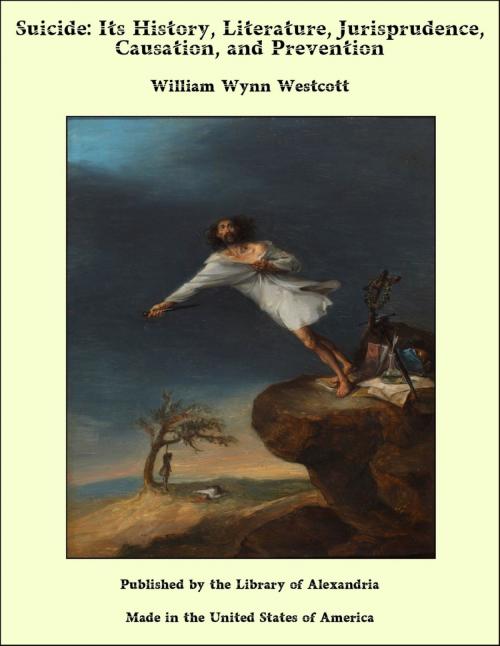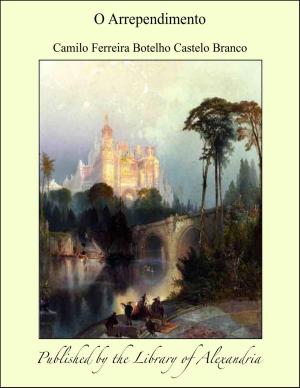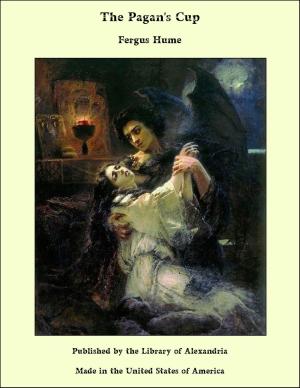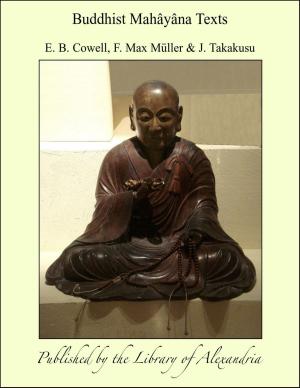Suicide: Its History, Literature, Jurisprudence, Causation, and Prevention
Nonfiction, Religion & Spirituality, New Age, History, Fiction & Literature| Author: | William Wynn Westcott | ISBN: | 9781465625144 |
| Publisher: | Library of Alexandria | Publication: | March 8, 2015 |
| Imprint: | Language: | English |
| Author: | William Wynn Westcott |
| ISBN: | 9781465625144 |
| Publisher: | Library of Alexandria |
| Publication: | March 8, 2015 |
| Imprint: | |
| Language: | English |
In every age of the world, and in the history of almost every country, we find instances more or less numerous of men and women who, preferring the dim uncertainty of the future to the painful realities of the present, have sought relief from all their troubles by suddenly terminating their own existence. Misery and pain have been the lot of the human race ever since the dawn of history, and these causes have from the earliest times induced persons to destroy themselves, and even the fear of eternal punishment has not sufficed to deter them. Sorrow, suffering, and mental disease are practically the only causes of Modern Suicide; but in the ancient world, suicides from these causes were either much more rare than they are at the present time, or else were passed over as unworthy of record, in the presence of suicides of a more honourable nature. Hundreds of instances have come down to us in which death has been self-sought and inflicted from an idea or conviction that such self-destruction was to be of obvious advantage to the state, or to the sufferer’s family; or again, the fatal act was frequently committed as a point of honour to obviate the disgrace and ignominy of falling into the hands of a conqueror; or, again, to avoid pollution and shame at the hands of unscrupulous and debased tyrants. The history of the Jews as narrated in the Old Testament probably shows fewer instances of Suicide than the records of any other nation (nine only in 4,000 years); but whether or no there has been any special interposition of Providence on their behalf, or whether the result has been due to the inherent virtues of the laws of Moses, this is not the proper place to discuss or decide. It cannot be denied that the influence of religion has caused thousands to make a voluntary sacrifice of their lives, as offerings to their deities; and thousands more have voluntarily courted death to prove the sincerity of their faith. Madame de Stael has, with questionable propriety, pointed out that all the “martyr throng” were really instances of self-destruction instigated by devotion to faith, and that all suicides to avoid the stain of guilt are deaths of duty. But, among the numberless faiths of the world, extinct, and now existing, many have had a direct tendency to invest the idea of self-destruction with a charm. Some because they taught the doctrine of total extinction at death; others because they inculcated a belief in metempsychosis; whilst others, again, have taught the certainty of bliss hereafter, if death occur, whether self-sought or otherwise, while fighting for the faith. Philosophy also, which at different times supplanted or supplemented religious ideas, has often notably encouraged Suicide. The far-famed system of the Stoics, founded by Zeno, directly approved of it; to them it was the culminating point of self-abnegation, a flight from degradation. The equally notable system of the Epicureans also found in Suicide a congenial theme for panegyric; they believed in no future state, and proposed it as a means of escape from pain or annoyance here. In recent times, accompanying periods of decline of religious fervour, new systems of mental and moral philosophy have sprung up and become popular; and these, if not openly advocating the cause and permissibility of self-murder, have never associated themselves with Christianity in condemning it. A perusal of the volumes of Voltaire, J. J. Rousseau, and of David Hume, will make this obvious. But it seems probable that in the minds of many suicides there has been, below any religious faith, or philosophical dogma, the deeply-rooted conviction that death was a sleep and permanent rest, an eternal oblivion in the grave, and they consequently came to regard it as the grand solatium for present heart-breaking grief of mind, or intolerable pain of body.
In every age of the world, and in the history of almost every country, we find instances more or less numerous of men and women who, preferring the dim uncertainty of the future to the painful realities of the present, have sought relief from all their troubles by suddenly terminating their own existence. Misery and pain have been the lot of the human race ever since the dawn of history, and these causes have from the earliest times induced persons to destroy themselves, and even the fear of eternal punishment has not sufficed to deter them. Sorrow, suffering, and mental disease are practically the only causes of Modern Suicide; but in the ancient world, suicides from these causes were either much more rare than they are at the present time, or else were passed over as unworthy of record, in the presence of suicides of a more honourable nature. Hundreds of instances have come down to us in which death has been self-sought and inflicted from an idea or conviction that such self-destruction was to be of obvious advantage to the state, or to the sufferer’s family; or again, the fatal act was frequently committed as a point of honour to obviate the disgrace and ignominy of falling into the hands of a conqueror; or, again, to avoid pollution and shame at the hands of unscrupulous and debased tyrants. The history of the Jews as narrated in the Old Testament probably shows fewer instances of Suicide than the records of any other nation (nine only in 4,000 years); but whether or no there has been any special interposition of Providence on their behalf, or whether the result has been due to the inherent virtues of the laws of Moses, this is not the proper place to discuss or decide. It cannot be denied that the influence of religion has caused thousands to make a voluntary sacrifice of their lives, as offerings to their deities; and thousands more have voluntarily courted death to prove the sincerity of their faith. Madame de Stael has, with questionable propriety, pointed out that all the “martyr throng” were really instances of self-destruction instigated by devotion to faith, and that all suicides to avoid the stain of guilt are deaths of duty. But, among the numberless faiths of the world, extinct, and now existing, many have had a direct tendency to invest the idea of self-destruction with a charm. Some because they taught the doctrine of total extinction at death; others because they inculcated a belief in metempsychosis; whilst others, again, have taught the certainty of bliss hereafter, if death occur, whether self-sought or otherwise, while fighting for the faith. Philosophy also, which at different times supplanted or supplemented religious ideas, has often notably encouraged Suicide. The far-famed system of the Stoics, founded by Zeno, directly approved of it; to them it was the culminating point of self-abnegation, a flight from degradation. The equally notable system of the Epicureans also found in Suicide a congenial theme for panegyric; they believed in no future state, and proposed it as a means of escape from pain or annoyance here. In recent times, accompanying periods of decline of religious fervour, new systems of mental and moral philosophy have sprung up and become popular; and these, if not openly advocating the cause and permissibility of self-murder, have never associated themselves with Christianity in condemning it. A perusal of the volumes of Voltaire, J. J. Rousseau, and of David Hume, will make this obvious. But it seems probable that in the minds of many suicides there has been, below any religious faith, or philosophical dogma, the deeply-rooted conviction that death was a sleep and permanent rest, an eternal oblivion in the grave, and they consequently came to regard it as the grand solatium for present heart-breaking grief of mind, or intolerable pain of body.















